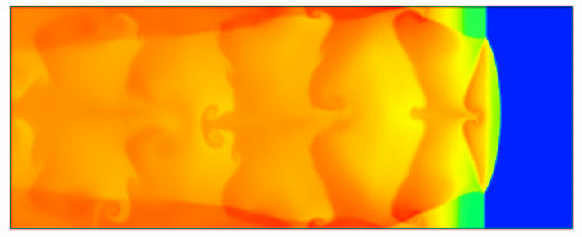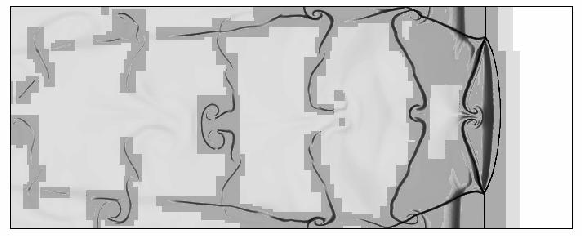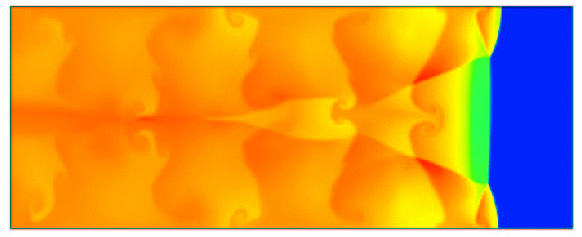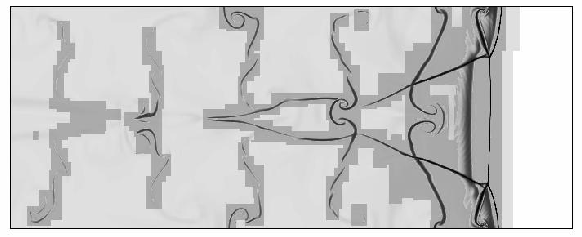Next: Snapshot 1 Up: Two-dimensional Simulations Previous: Two-dimensional Simulations
Regular Cellular Structure, H2:O2:Ar / 2:1:7, T0=298 K, p0=6.67 kPa
The one-dimensional solution of Fig. 3.1 is used as initial condition and the non-planar disturbance is initiated by the burning of an unreacted pocket with the temperature T=2086 K behind the detonation front. The detonation channel has the width 3 cm. After an initial time of about 200 microseconds the transverse oscillation is extremely regular.
The simulation uses Godunov-splitting for the incorporation of the source term and for the dimensional extension of a hybrid Roe-HLL scheme with MUSCL reconstruction. Automatic time step adjustment for CCFL = 0.95, Van Albada-limiter, 44.8 Pts per induction length lig. Dynamic adaptive mesh refinement with AMROC with two additional refinement levels (refinement factors 4,4). The computational time was 2150 h CPU time on Pentium-III 850 MHz.





Subsections
- Snapshot 1
- Snapshot 2
- Snapshot 3
- Snapshot 4
- Snapshot 5
- Snapshot 6
- Snapshot 7
- Snapshot 8
- Triple Point Sub-structure
Next: Snapshot 1 Up: Two-dimensional Simulations Previous: Two-dimensional Simulations
Table of Contents Home Contact